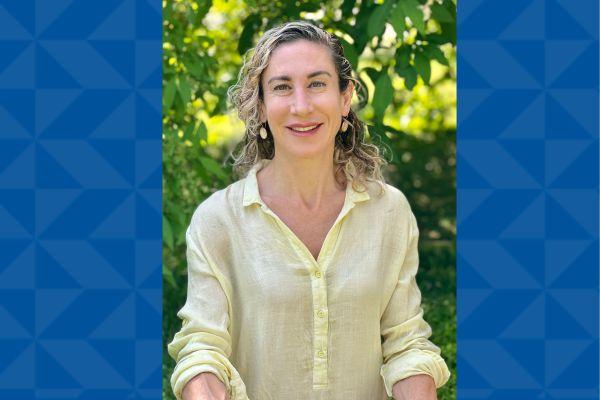Faculty in Focus - Emily M. D'Agostino, DPH, MS, MEd, MA

Emily M. D’Agostino is an assistant professor and director of community-engaged research practice in the Occupational Therapy Doctoral (OTD) program. With a primary appointment in Orthopaedic Surgery, she also holds appointments in the Department of Population Health Sciences, Duke Clinical Research Institute, and the Duke Global Health Institute.
What Do You Teach?
OTD 506 and 512 Assembling, Creating, & Translating Knowledge I and II. This two-course series explores the intersection of occupation, diversity, and health through a community-engaged research project. I also mentor many students across several departments at Duke and at several levels, from undergraduate to post-doctoral students, medical students, residents, and fellows.
Tell us about your research.
I am a community-engaged, social epidemiologist. I study the factors that promote health equity at the population level. Some of my research expertise is in promoting physical activity and fitness, preventing obesity, and fostering mental health and resilience among youth. I also am interested in addressing structural and social factors that impede access to health-promoting community resources for all ages.
One of the projects that I currently lead is with Durham Parks and Recreation. It is called Going Places and aims to increase physical activity among underserved and minoritized youth by addressing transportation equity. The program is offered for teens who attend Durham Parks and Recreation afterschool programs and aims to increase the utilization of park and other community programs and resources by leveraging active transportation (biking/walking) and the public transit system.
Three out of four U.S. youth do not meet minimum CDC physical activity standards of at least 60 minutes or more of moderate to vigorous physical activity every day. By promoting transportation equity, we hope that more youth can obtain the necessary physical activity for optimum health, both by participating in active transportation and by reaching more destinations that provide them with access to recreation.
I also lead and collaborate on multiple other research projects related to COVID-19 testing and treatment access for underserved communities, school-based mental health, physical activity, and resilience promotion for students and teachers, reducing overweight and obesity through park-based interventions and community-clinic collaborations.
Tell us about your career:
I began my career in epidemiology as an AmeriCorps teacher in the New York City Department of Education, where I taught epidemiology in public high schools to support student health literacy, science literacy, and equitable access to STEM careers.
I also spent 10 years working with the New York City Department of Health and Mental Hygiene, the largest and most diverse school system in the nation, where I have focused extensively on youth physical fitness surveillance data. In addition, I spent four years as a senior epidemiologist for the Miami-Dade County Parks, Recreation, and Open Spaces Department, which comprises almost 300 parks and evidence-based programs to promote health among its approximately 2.5 million residents.
I am dedicated to making a difference in people’s lives by promoting equitable access to health, with a special focus on partnering with community organizations to support underserved populations.
What brings you joy?
I find my work very fulfilling and exciting. I am proud of the partnerships our teams have established, and the trust that we have fostered to promote health equity. On a personal level, I love to be outside and active anywhere with my family, including hiking, kayaking, running, and swimming. I am passionate about travel, trying new foods, and experiencing new places. I also am really enjoying road trips throughout North Carolina and getting to know this wonderful state.